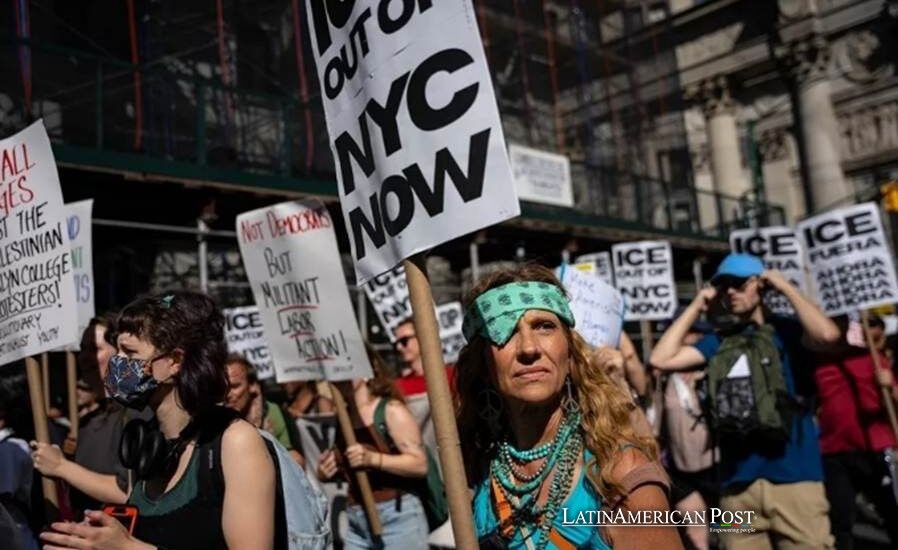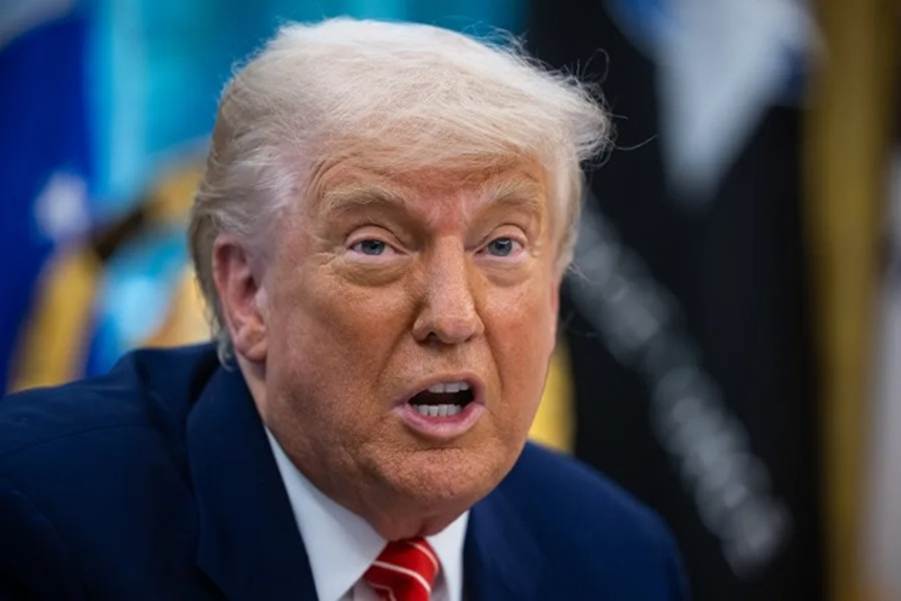U.S. Latinos Lose Faith As Trump-Era Fears Reshape Politics Nationwide

Anxious, overworked, and politically alienated, U.S. Latinos now hold some of the bleakest views of their place in America in nearly two decades of polling, according to Pew Research Center’s study conducted this October amid Trump’s turbulent second-term policies.
A Community Losing Faith In Belonging
According to Pew Research, U.S. Latinos are entering the 2026 midterm cycle with a historically dark outlook on their lives and future. Roughly 68% say the situation for Hispanics in the United States has worsened in just the past year — the highest share ever recorded in the Center’s National Survey of Latinos. That sense of decline stretches far beyond everyday political frustration; it reflects a more profound belief that being Latino in America now carries growing risk, stigma, and uncertainty.
The study shows a community that feels singled out by both rhetoric and policy. About four in five Latinos say Trump’s second-term policies are harming Hispanics — a higher share than during his first term — suggesting the White House’s escalated focus on immigration enforcement and border militarization is landing as a direct threat rather than a distant political argument. A separate Axios-Ipsos Latino Poll, cited alongside Pew’s findings, reports that nearly two in three Latinos believe it is simply a bad time to be Latino or Hispanic in the United States.
Fear is no longer theoretical. In the six months before Pew conducted its survey, 59% of Latino adults said they had seen or heard about immigration raids in their communities. Nearly a third — 32% — say they have thought about leaving the United States altogether, most citing politics as the reason. For a population long defined by migration and the promise of America as refuge, contemplating departure is a stark indicator of disillusionment. Aggressive enforcement, harsh rhetoric, and persistent economic strain are reshaping how many Latinos understand their place in the country, Pew’s data suggests.
Economic Pain Behind The Headlines
Pew’s findings reveal a gap between national economic indicators and the lived experience of Latino households. Federal data shows rising Latino household income and falling poverty rates, yet most respondents still describe themselves as financially insecure. About half say they struggled over the past year to afford food, housing, or medical care — the basic foundations of stability.
Their coping mechanisms paint a sobering picture. More than 36% say they borrowed money from friends or family in the past year. At least one in four reports having trouble paying for electricity, transportation, or other necessities. These are not luxury expenses but the everyday costs of getting to work, keeping the lights on, and maintaining a household. Latinos told Pew they are cutting back, taking on more debt, and juggling bills in ways that rarely show up in headline unemployment numbers.
The result is a profound sense of being squeezed from all sides: on paper, the economy is improving, yet daily life feels more precarious. This disconnect helps explain why assessments of Trump’s economic policies skew so negatively among Latinos despite broad claims of national growth. For many, opportunity feels fragile. They see an administration focused on deportations and culture-war priorities rather than on affordability and wages — and that perception deepens the gloom captured in Pew’s numbers.

Partisan Fault Lines And The Trump Effect
Pew’s data grows even more complex when broken down by political affiliation. Latino Republicans have grown more optimistic about the economy, aligning with broader conservative confidence in the Trump-era growth. Yet even inside the president’s Latino base, discomfort lingers over deportations and enforcement campaigns that fracture families and destabilize communities.
Latino Democrats, by contrast, register overwhelming negativity across nearly every measure — Trump’s job performance, how Hispanics are treated in society, and whether policies are helping or harming their community. Two-thirds of Latino Republicans and GOP-leaning independents (67%) approve of Trump’s performance. Meanwhile, 92% of Latino Democrats and Democratic-leaning independents disapprove.
That gulf underscores a more profound truth: partisanship now shapes lived reality as much as policy itself. Yet Pew researchers emphasize something else — that this wave of Latino pessimism has emerged with alarming speed. In another study, Trump performed better with Latino voters in 2024 than many expected, nearly achieving a historic benchmark for Republicans. One year later, Pew’s new polling suggests much of that progress has collapsed. Harsh assessments of Trump’s second-term agenda — especially on immigration and the economy — appear to have reversed hard-won GOP gains among a group once seen as increasingly competitive.
Midterm Stakes In Latino Battlegrounds
The political stakes could not be higher. Latinos are not only a growing share of the national vote; they are pivotal in states like Texas, Arizona, and California, where close elections hinge on shifting turnout and changing loyalties. Pew’s findings suggest Republicans will enter the 2026 midterms facing deep skepticism from Latino voters at a moment when this electorate wields more influence than ever.
Yet Democrats should not read the data as a guarantee. Latino pessimism extends beyond a single presidency — it reflects a broader crisis of faith in American institutions. High levels of debt, job insecurity, and the remarkable fact that nearly a third have considered leaving the country altogether point to something larger than disapproval of Trump. They reveal a population questioning whether the United States still offers the security, mobility, and belonging it once promised.
Winning Latino voters — and keeping them — will require more than anti-Trump messaging. It will demand tangible improvements in affordability, legal pathways to status, and neighborhood safety. Latinos are signaling that symbolic gestures and rhetoric are no longer enough.
Pew’s latest survey is built on responses from 4,923 Latino adults, including 1,125 members of the American Trends Panel and 3,798 respondents from SSRS’s Opinion Panel, plus 3,114 non-Hispanic ATP members for comparison. The National Survey of Latinos was conducted between October 6 and 16, 2025, and carries a margin of error of ±2.6 percentage points.
Taken together, the findings sketch a pivotal electorate under extraordinary strain — cautious, anxious, and more skeptical than at any time in recent memory that America will deliver on its promises. As Pew’s research makes clear, how leaders respond to U.S. Latinos’ fears will help determine not just who wins the next election, but what kind of country these voters believe they are choosing to remain in.
Also Read: Colombian Fishermen Caught Between Cartel Wars and Washington’s Distant Guns




